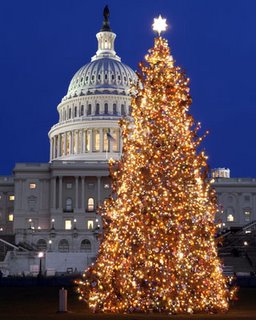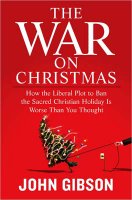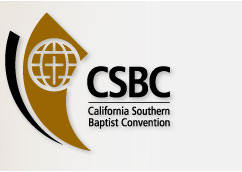 FREQUENTLY ASKED QUESTIONS (FAQ)about our ABCPSW relationship with ABCUSA(revised 10/28/05)
FREQUENTLY ASKED QUESTIONS (FAQ)about our ABCPSW relationship with ABCUSA(revised 10/28/05)
Topical headings include: A. ABCPSW Regional Relationships B. ABCPSW Local Church Relationships C. Process Toward Withdrawal and Beyond
A. ABCPSW Regional Relationships
A1. What was the resolution passed by the ABCPSW on September 8, 2005?
The resolution states:
Because the deep differences of theological convictions and values between the American Baptist Churches of the Pacific Southwest (ABCPSW) and the American Baptist Churches in the USA (ABCUSA) are understood by the Board of Directors of the ABCPSW as irreconcilable, the Board of Directors of the ABCPSW takes the following action effective September 9, 2005:
1. Initiate the process to withdraw from the Covenant of Relationships of the ABCUSA. The Executive Committee of the ABCPSW will report to the ABCPSW Board of Directors regarding issues related to this action by December 8, 2005. Upon approval by the Board of Directors of the ABCPSW recommendations will be sent to the churches for a vote at a specially called meeting of the Region.
2. Authorize the Executive Committee of the ABCPSW to consult with necessary professionals regarding issues related to this action.
3. Withdraw from the Budget Covenant of the ABCUSA effective 12/31/05.
Note: For expanded information, letters and press releases from Region Board, go to
www.abcpsw.com/release.htmlA2. What is the Covenant of Relationships?
The Covenant of Relationships defines and directs interaction among the Regions and the National Boards of the ABCUSA, including the General Board, the Board of International Ministries, the Board of National Ministries and the Ministers and Missionaries Benefit Board. The Budget Covenant is part of the Covenant of Relationships.
A3. What is the status of the ABCPSW in regard to the ABCUSA at this time?
At this time the ASBCPSW is still a full member of the Covenant of Relationships in the ABCUSA. We are also in full compliance with the Budget Covenant of the ABCUSA, which regulates the raising and distribution of mission giving within the denomination. This means that at least through the end of 2005, the ABCPSW will remain in full membership within the ABCUSA.
A4. Does the Region seek total withdrawal from ABCUSA? If not, what will we still support?
We have begun a process of withdrawal only from the ABCUSA Covenant of Relationships and Budget Covenant. It is not our intention to withdraw from all the relationship and support we receive and we provide with many American Baptist missionaries and organizations. The ABCPSW would seek to negotiate agreements with the ABCUSA and its related organizations to cooperate in areas of mission important to our congregations.
As we continue in this process we continue to advocate for change. In August, 2005 the Region Board approved two resolutions:
That the ABCPSW endorse a coalition with like-minded Regions and American Baptist institutions to work in concert to bring Biblical renewal to the ABCUSA;
That the ABCPSW join other Regions in endorsing the Indiana/Kentucky proposal for implementing the Resolution on Homosexuality for approval by the General Board at the November 2005 meeting.
We will also continue to pray for God’s blessing on the ABCUSA, its leadership, agencies and congregations.
A5. Why did the PSW Board select December 31 as the withdrawal date from the Budget Covenant?
This date was selected because it is the close of the Budget year. At the December 8 meeting the Region Board will review whether this date is the best time to withdraw from the Budget Covenant or whether it would be preferable to coincide this action with the withdrawal of the Region from the Covenant of Relationships.
A6. It sounds like the recommendation made by the Board is not yet in cement. Is that true?
Yes. The Board voted to “Initiate the process to withdraw from the Covenant of Relationships of the ABCUSA.” There is much work, study and discussion to be done. As the Executive Committee works through the multiple layers of relationships among all the partners in the Covenant, it will provide more details.
A7. Why did the ABCPSW Board initiate the process to withdraw from the Covenant of Relationships with the ABCUSA? Is homosexuality the issue?
The Board cited deep differences of theological convictions and values between the American Baptist Churches of the Pacific Southwest (ABCPSW) and the American Baptist Churches in the USA (ABCUSA) that are understood to be irreconcilable. Differences of opinion regarding the moral acceptability of homosexual behavior among American Baptists are part of the issue. But they are far from being the only issue.
Picture in your mind an iceberg. The portion of the iceberg above the water is much smaller than the portion beneath the surface. The deep differences between the PSW and the ABCUSA may be understood by writing the word “homosexual behavior” on the portion of the iceberg above the surface, and writing “Biblical Authority and Accountability” on the portion below the surface.
The ABCUSA has a resolution on homosexuality with which the ABCPSW agrees: “The practice of homosexuality is incompatible with Christian teaching.” The problem with this resolution is that no implementation statements are attached to it. Therefore, while the statement describes the convictions of the majority of American Baptists, it has little or no effect on the actions of the denomination. Persons who are open about their homosexual practice are at times appointed to committees and commissions, and have served on governing boards of the denomination. This happens because the ABCUSA does not require or enforce any specific understanding of doctrine or Biblical understanding on ABC Regions or local congregations. This protects the autonomy of local congregations and the liberty of individual Baptists to interpret the Scriptures as they believe they are led by the Holy Spirit. But it also results in diversity regarding theological and moral convictions so great that American Baptists are often in conflict.
Note: For a more complete understanding of what led to this please read the article from Dr. Salico entitled “Position Paper on Denominational Boundaries.” Found here:
http://www.abcpsw.com/ExecMin.htmlA8. What is the ABCPSW doing to reach understandings with the ABCUSA for continued cooperation in mission and ministry in areas of agreement?
Beginning in our first correspondence and conversations with General Secretary Roy Medley following the PSW Board’s decision to initiate the process to withdraw from the Covenant of Relationships, we have made it clear that the churches of this Region have strong mission relationships with many ABC partners. Several missionaries appointed by International Ministries and National Ministries are members of PSW churches. Native American churches in the PSW have strong ties both with the Region and National Ministries. Valley Christian Center in Phoenix is an important ministry supported by National Ministries and the churches of this Region.
On September 27, Dr. Salico met with Dr. Medley, ABCUSA General Secretary, and with Rev. Charles Jones, the Executive Director of International Ministries to work on understandings for continued cooperation. The ABCPSW is committed to continue its partnership with International Ministries. PSW President Brian Scrivens and Dr. Salico have indicated our desire to meet with the appropriate leaders in the ABCUSA to work on other areas for potential partnership.
A9. How will this decision affect our Regional vision?
No matter what happens to our relationship with ABCUSA, the ABCPSW Vision Community (made up of pastors, lay leaders, and Regional staff) has been working hard for over a year to develop a strong, empowering vision for our churches. The ABCPSW is committed to our new vision of: Strengthening churches to change their worlds for Christ, and our core values: Biblical Authority, Local Church Integrity, Leader Development, and Kingdom Multiplication. We are now implementing a plan of developing world-class leaders in our churches through Teaching, Coaching and Mentoring.
A10. Will the ABCPSW become a new denomination or part of another denomination?
Frankly, we do not see that far into the future. For the time being we are working to establish understandings and protocols with the ABCUSA and its related agencies to guide our future relationship.
A11. Is it true that the ABCPSW Board has acted in conjunction with the American Baptist Evangelicals in its recommendation to withdraw from the ABCUSA Covenant?
No. Conspiracy theories are popular in today’s world, but are most often wrong, including the assertion that the ABE was a factor in the Board’s decision. Board members made their decisions for a variety of reasons, but the opinions and plans of the ABE was never part of the discussion.
A12. If we vote to withdraw, what will be different?
If the churches of the Region approve the recommendation of the ABCPSW Board of Directors:
The Region would no longer be a member of the ABCUSA and would have no representation on the General Board or Program Boards of the denomination.
The Region Executive Minister would no longer be a part of the Regional Executive Ministers Council (REMC), participate in the General Executive Council (GEC), or the General Board.
Churches desiring to remain members of the ABCUSA would be able to do so while continuing affiliation with the ABCPSW.
The ABCPSW would seek to negotiate agreements with the ABCUSA and its related organizations to cooperate in areas of mission important to our congregations.
In addition, Jeff Woods, Associate General Secretary Regional Ministries, ABCUSA states that our Region would no longer function as a denominational entity. Thus, we would no longer link to other organizations as a Regional board. We may also not have denominational recognition of ordinations, or have access to the same kinds of profile screenings for congregational placement, or receive disaster relief funds when disasters affect our congregations. Other organizations that may be affected include men’s, women’s and youth organizations. (source: memo from Jeff Woods sent to ABCUSA Regional staff.)
A13. What is the significance of the Parchment Valley Agreement?
Eight ABC-USA Executive Ministers from across the nation gathered at the West Virginia Baptist Conference Center at Parchment Valley. They forged an agreement that affirms historic covenantal relationships between Regions. This points to a future of renewed cooperation in mission, based on mutually held core values. The American Baptist Churches of: Michigan, Ohio, Indiana/Kentucky, West Virginia, Pennsylvania/Delaware, New Jersey, Maine and the Pacific Southwest were represented at this meeting. Together these Regions represent more than 2300 churches or 40% of ABC-USA congregations.
The agreement states:
Parchment Valley Agreement
September 22, 2005
We are an association of Executive Ministers committed to authentic covenantal relationships with one another in order that our Regions can cooperate in mission.
We commit ourselves to the following core values:
Biblical Authority
Associational Integrity & Accountability among Regions
Leadership Development
Equipping our churches to impact the world for Christ.
The eight executive ministers believe that others will join their fellowship and anticipate a bright future of ministry and mission together.
Note: Since the initial meeting, three other Executive Ministers have also signed this agreement.
A14. What about our relationship with the American Baptist Theological Center (ABTC) and its role within ABCPSW and ABCLA?
ABTC has published this memo: “Given the current uncertainties about the Covenant of Relationships between the American Baptist Churches USA and the American Baptist Churches of the Pacific Southwest, there have been questions about impact on the American Baptist Theological Center located on the campus of Fuller Theological Seminary.
At their meeting on September 20, 2005, the Board of Directors of the American Baptist Theological Center (ABTC) affirmed the following statement: “At this point, what impact all of this will have on ABTC is not known. The plan for the future is two-fold: 1) Concentrate on ministry to the students this academic year 2005-2006, which is just starting, and 2) Once the vote of the American Baptist Churches of the Pacific Southwest on their Board’s recommendation is known, probably in March 2006, then ABTC’s Board of Directors will have to explore the implications for the American Baptist Theological Center.”
A15. Why is it taking so long for the ABCPSW to separate from the ABCUSA?
The American Baptist Churches of the Pacific Southwest has been in existence for 110 years, and has been part of what is now the American Baptist Churches in the USA since the founding of the Northern Baptist Convention in 1907. Over the years the ABCPSW has worked with the American Baptist Home Mission Society (now ABC National Ministries), the American Baptist Foreign Mission Society (ABC International Ministries) and other American Baptist related agencies. Countless projects to plant churches, establish mission centers, send missionaries around the world, evangelize communities and people groups, settle immigrants, provide for the needs of the poor, and establish institutions of learning, homes for the aging and hospitals have been undertaken together with American Baptist partners. The commitments and legal relationships from these ministries must be carefully studied and decisions made about how to best continue gospel ministry as we create some distance between the ABCPSW and the ABCUSA.
All of us who are involved in this study are at the same time responsible for on-going mission and ministries that also demand attention. We are committed to be thorough in our study and wise in our decisions in order to be good stewards of the Church.
A16. Did the ABCPSW Board change the date on which the Region will drop out of the Budget Covenant with the ABCUSA? Why?
Yes. Originally the Board had set December 31, 2005 as the date the region would drop out of the Budget Covenant. However, the ABCUSA was interpreting December 31 as the date the Region would withdraw from the Covenant of Relationships, because, in the view of the General Secretary, "to withdraw from any portion of the Covenant of Relationships is to withdraw from the entire Covenant." The ABCPSW Board believes there should be as an expression of the will of Delegates of the churches on this issue to provide the Board with the input it needs to make a responsible and informed decision, Therefore for Board has passed a new resolution stating, "The ABCPSW will remain in the Budget Covenant of the ABCUSA until such time as the churches vote the Region out of the Covenant of Relationships." Such a vote, according to the provisions of the bylaws of the ABCPSW cannot take place earlier than March, 2006.
A17. Will the ABCPSW join the new movement that is being initiated by American Baptist Evangelicals?
A new movement discussed at a meeting in Lombard, Illinois by over 300 American Baptist pastors and leaders is still in the process of formation. It is not yet clear what this movement will be. There seem to me many people who believe the ABCPSW is working in conjunction with ABE in determining, but this is not true.
There is a great deal of ferment going on in the American Baptist Churches involving Regions, coalitions, caucuses, boards and agencies. Most of this ferment is related to issues involving human sexuality, Biblical authority, accountability, local church autonomy and soul liberty. At times certain American Baptist agencies will be walking similar paths, and it would be easy to assume they are working together. In reality, each entity is working through its own issues and decision-making process independently of the others. Only the Lord knows how it will all turn out.
A18. Isn't it true that some PSW Board members have hidden motives behind their recommendation to withdraw from the Covenant of Relationships?
The hard thing about motives is that they are invisible. No one can see a motive. That makes it hard to know the motives of another person. The Bible says it is even hard for us to know our own motives! (Jeremiah 17:9) Because motives are invisible, it is easy to charge someone with "hidden motives" and it is difficult to prove that one has no such "hidden motives."
This is where trust built on relationships comes in. The members of the ABCPSW Board have had long and difficult conversations about the Region's relationship with ABCUSA in which board members have shared very deeply. They have prayed together and wept together. They have asked each other hard questions and answered the hard questions. They have shared their thoughts, feelings and motives with each other in an amazingly open way. All of this has helped them develop trust in each other.
When someone who was not in those meetings charges board members with "hidden motives," I find myself asking, "On what evidence is this person basing his or her conclusion? And what is this person's motive for questioning the motives of those who were in the meeting?"
The members of the ABCPSW Board are known in our Region. I encourage you to write or speak directly with them about their thoughts, feelings and motives. Rather than standing at a distance and questioning motives, let's build relationships that will produce trust today and a foundation for effective mission in our Region tomorrow.
A19. What will be the status of the Black Caucus, the Hispanic Baptist Convention, AB Women's Ministries and AB Men of the ABCPSW withdraws from the ABCUSA?
All of these groups serve a very valuable purpose for our Region. They provide a way people from a common group to gather together and study, share concerns, and formulate ministries, as well as make important recommendations for the entire ABCPSW family. Many times input from our caucuses has blessed us greatly! We will work with leaders of these organizations to continue their ministries in the future. Since each of the above named groups includes people and churches in both the ABCPSW and the ABC of Los Angeles, we will work with leaders in the ABCLA to continue the bonds of fellowship and service together in Christ's kingdom we have shared and enjoyed in the past.
A20. Who are the members of the ABCPSW Board and how can I contact them?
OFFICERS
Mr. Brian Scrivens, President - Brian4031@aol.com
Rev. Daniel Huerta, Vice President - pastordan1@lycos.com
Rev. Douglas Copeland, Treasurer - vcctr@hotmail.com
Rev. Jerri Hubbard, Secretary - hbb724@aol.com
MEMBERS:
Rev. Terry Barnett, Golden Empire Association - revatroc@msn.com
Mr. Art Blodgett, San Diego Rep - cbcfallbrook@juno.com
Mrs. Cleda Givens-Bullock, Nationally Nominated Rep - cgbullock@covad.net
Rev. Floyd D. Bullock, Black Caucus Rep - fdtheword933@cs.com
Mrs. Loretta Cargill, Area 3 Rep - Lorettamc@aol.com
Rev. Hengky Chiok, Asian Church Rep - Hengky@gbip.org
Ms. Beverly-Jene Coffman, ABWM Rep - beverlyjene_coffman@pomona.edu
Mrs. Sharon Dumas, Central Coast, Ventura & Hawaii Rep - sharond@pixi.com
Rev. Larry Fultz, Arizona Rep, Regionally Nominated Rep - cubby-fan@excite.com
Dr. Vic Gordon, Regionally Nominated Rep - vicg@firsthbfv.com
Rev. Ronald Johnson, At Large Member - RevRonJohn@juno.com
Mr. Manuel Luquin, ABM Rep & Regionally Nominated Rep - luquin316@aol.com
Mr. Larry O'Nan, Inland Empire Association Rep - lonan@mdalink.com
Mrs. Joyce Winterberg, Regionally Nominated Rep - joycewin@ev1.net
A21. Does National Ministries have a direct role of supporting some or all of the Native American churches located in our Region?
The ABCPSW Region is blessed to have nine churches serving Native American people in Arizona (and one church in New Mexico). We also partner with the Mennonite Churches in support of the Hopi Mission School (Christian elementary school) in Kykotsmovi, Arizona and with a family outreach ministry among Navajo people near White Cone, Arizona. Many of these ministries were started over a hundred years ago through the American Baptist Home Mission Society that sent missionaries and started ministries that became the churches we have today.
Due to the economic realities on the reservations, most of these ministries continue to receive resources directly from National Ministries. This support provides for pastor salaries, educational and project grants, leadership development, facility maintenance, and liability insurance.
A22. Have our Native American Churches been told they will lose their salary support if the Region withdraws from ABCUSA?
Although there was a time of uncertainty with what our churches understood about their future we are now able to report the following:
1.) National Ministries will continue to provide salary support in the coming year similar to what they are doing now. This is true whether or not ABCPSW withdraws from the covenant of relationships.
2.) While National Ministries does hold the deed to some of Native American properties there is no plan or threat to remove any property from any Indian church.
3.) Of course the relationship of any Indian Church with National Ministries may change if a church decides to leave the ABCUSA, affiliate only with ABCPSW or become independent of either group.
A23. Is it true that some of our Native American churches may be forced out of their facilities that are owned by National Ministries because of what the Region does?
Some of our Native American congregations in the ABCPSW reside on land leased from the Federal Bureau of Indian Affairs, a few churches are located on land that National Ministries holds the deed, and at least one church received their deed from National Ministries provided they remain in the ABCUSA. While there were some fears raised and implications made regarding the Region's process of withdrawal, there is no threat being made to our churches to vacate their facilities if the Region leaves the Covenant of Relationships with ABCUSA.
All recent communication from Roy Medley and National Ministries has made it clear that all churches (including our Native American churches) in our Region remain affiliated with ABCUSA unless or until a specific church votes to leave the ABCUSA.
A24. Is it true that someone lost his job in the Region who served American Baptist Indian Ministries?
Bruce Schipul is our Church Resource Minister working with the Arizona churches and organizations for the past six years. Since June of 2002 ABCPSW and National Ministries contracted together to fund 20% of Bruce Schipul's salary and time to provide consultant work for Indian ministries. He fostered communication, resource sharing and relationship between churches, National Ministries and the Region. When the region announced it began a process of withdrawal from ABCUSA, Bruce was contacted by a National Ministries representative and told the contract was ended, effective the date the Region board took its action (September 8, 2005). Bruce's salary and benefits are paid to him by the Region and therefore have not been affected by this action.
A25. Is there something we can do as individuals and churches to show support to our Native American churches?
Please contact our Regional office for information on the best ways to:
offer salary support,
start a sister-church relationship,
sponsor a mission and work tour, and
invite a group of Native Americans to your church.
We can also help you designate support to special projects, fund camperships, and facility repairs for our Native American brothers and sisters.
A26. Am I to understand that the ABCUSA is accepting homosexuality and allowing homosexuals into leadership both in local churches, as well as regional and national roles?
The answer is that the ABCUSA places a high value on the autonomy (self-governing) of the local church and soul liberty (which they define as the right of every individual to interpret the Scriptures under the guidance of the Holy Spirit as they believe correct). Therefore, while the majority of American Baptists believe homosexual relationships are sinful, according to Scripture, the ABCUSA upholds the right of the minority to disagree and still fully participate in the life and leadership of the denomination. That is why there are some individuals who are open about their homosexual practice while serving as pastors in American Baptist churches. Some of these individuals serve in leadership roles in Regions and on boards, committees and commissions of the ABCUSA.
The ABCUSA Resolution on Homosexuality states, “The practice of homosexuality is incompatible with Christian teaching.” For twenty years, many American Baptists leaders, including myself, have called for implementation of the resolution in order to prohibit persons involved in or condoning sexual behavior identified in the Bible as sinful from serving in positions of national leadership, such as the Ministers Council Senate, the General Board, national committees and commissions, and platform leadership at ABCUSA events. The ABCUSA, however, has rejected such restrictions, viewing them as denials of local church autonomy and soul liberty.
Without meaningful implementation, the ABCUSA Resolution on Homosexuality appears to be nothing more than words on a piece of paper. We believe that while churches should be autonomous there must be accountability for a commitment to Biblical authority and practice if we are to work together in mission.
The ABCPSW has a thorough policy on human sexuality that has been implemented. To read this policy on our website, go to:
http://www.webmedleysb.com/media/media-76548.doc.
A27. Why is the leadership of ABCUSA not required to listen to, and respond in a positive manner toward the issues that over half of the churches consider critical?
When I was on the Commission on Denominational Unity during the 90's we conducted a study showing that well over 50% of the churches agreed with the ABCUSA Resolution on Homosexuality. However, agreeing with a statement and agreeing on how to implement policy in the denomination are two different issues. What some would view as appropriate implementation, others view as "too much," and still others see as "too little!"
Furthermore, there are well known leaders, such as Dr. Medley, who strongly and eloquently contend that any implementation of the Resolution on Homosexuality is "unbaptistic," because it would limit the autonomy of the local church or "soul liberty."
A third factor is that many, who agree intellectually with the policy statement on homosexuality, live by the credo, "Don't rock the boat!" They are adverse to doing anything that upsets or angers others. Therefore, they remain quiet about their convictions.
The ABCPSW Board of Directors had the courage to "rock the boat" over the inconsistency between denominational words and deeds regarding homosexuality. The great majority of the churches in our Region are standing with the Board. Because of our united voice, we are being heard. We do not yet know for certain what the future will be, but we know the future will be different because we are standing together
A28. Why are the Executive Directors of International Ministries, National Ministries and MMBB, along with the ABCUSA General Secretary, Dr. Roy Medley, holding meetings in the ABCPSW with pastors and church leaders November 7-8?
Dr. Medley states that these meetings are for churches that want to remain in the ABCUSA even if the ABCPSW withdraws from the Covenant of Relationships. He has also indicated that this may be done either by a church withdrawing from the ABCPSW and joining another Region, OR by a church being dually aligned with the ABCUSA and the ABCPSW. In the meeting, Dr. Medley will share more about this. The Executive Directors of the Program Boards will discuss how their mission agencies will relate to churches.
Dr. Medley has made it clear that the purpose of these meetings is neither to debate the merits of the actions of the ABCPSW Board of Directors nor to debate the issue of homosexuality.
A29. Has Dr. Salico tried to work within ABCUSA to bring about change?
The issue of homosexuality has been the subject of sharp debate in the ABC for about 20 years. Long before he came to the ABCPSW, he was working to strengthen commitment to Biblical Authority in the ABC and maintain denominational unity through...
· National Ministries Grow By Caring Task force member and writer.
· ABCUSA Commission on Denominational Unity.
· Common Ground Conference Leader.
· Many calls to pastors urging them to stay in the ABC.
· ABCUSA General Board & and Board of International Ministries.
· Called to PSW as Executive Minister to cast vision, uphold Biblical convictions and maintain unity with the ABCUSA.
· Writing committee for new ABCUSA Budget Covenant
· Consistently advocated for implementation of Resolution on Homosexuality while maintaining unity.
· Written letters and position papers regarding these issues.













